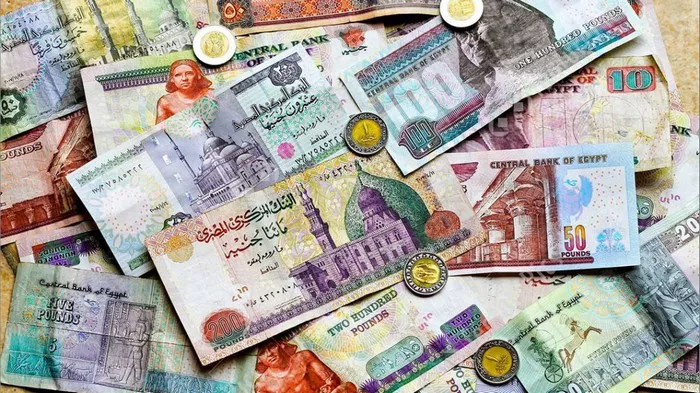Foreign exchange markets, also known as forex or FX markets, are crucial components of the global financial system. These markets facilitate the exchange of currencies between participants, enabling international trade and investment. Understanding the different types of foreign exchange markets is essential for anyone involved in international business, finance, or trading. In this comprehensive guide, we’ll delve into the three main types of foreign exchange markets and explore their distinct characteristics, functions, and significance.
Interbank Market
The interbank market is the primary marketplace for foreign exchange transactions, where major banks and financial institutions trade currencies among themselves. It serves as the foundation of the global forex market and operates 24 hours a day, five days a week, across different time zones. Transactions in the interbank market are typically large in volume and involve significant sums of money.
Key Features of the Interbank Market:
1. Liquidity: The interbank market is highly liquid, meaning that large volumes of currencies can be bought or sold with minimal impact on prices.
2. Participants: Major banks, central banks, hedge funds, multinational corporations, and other financial institutions participate in the interbank market.
3. Electronic Trading: Transactions in the interbank market are predominantly conducted electronically through trading platforms and networks, ensuring efficiency and transparency.
4. Price Determination: Exchange rates in the interbank market are determined by supply and demand dynamics, influenced by factors such as interest rates, economic indicators, geopolitical events, and market sentiment.
Retail Market
The retail forex market caters to individual traders and investors, allowing them to engage in currency trading through online platforms provided by brokers. Unlike the interbank market, which primarily serves institutional participants, the retail market enables individual investors to access the forex market with relatively small amounts of capital. Retail forex trading has gained popularity in recent years due to advancements in technology and the proliferation of online trading platforms.
Key Features of the Retail Market:
1. Accessibility: Retail forex trading platforms are accessible to individual traders worldwide, offering them the opportunity to speculate on currency pairs and participate in the global forex market.
2. Leverage: Retail brokers often provide leverage, allowing traders to control larger positions with a smaller amount of capital. While leverage amplifies potential profits, it also increases the risk of losses.
3. Retail Brokers: Retail traders execute their trades through online brokers, who act as intermediaries between traders and the interbank market. These brokers offer various trading services, tools, and educational resources to their clients.
4. Regulation: The retail forex market is subject to regulatory oversight in many jurisdictions to protect investors from fraudulent practices and ensure fair and transparent trading conditions.
Exchange-Traded Market
The exchange-traded forex market, also known as the currency futures market, involves the trading of standardized currency futures contracts on organized exchanges. Unlike the interbank and retail markets, where transactions are decentralized and conducted over-the-counter (OTC), the exchange-traded market operates through centralized exchanges, where buyers and sellers come together to trade standardized contracts.
Key Features of the Exchange-Traded Market:
1. Standardization: Currency futures contracts traded on exchanges are standardized in terms of size, expiration date, and other specifications, facilitating liquidity and price discovery.
2. Clearing and Settlement: Transactions in the exchange-traded market are cleared and settled through the exchange’s clearinghouse, which acts as a counterparty to all trades, ensuring the fulfillment of contractual obligations.
3. Transparency: Exchange-traded markets offer transparency in pricing and order execution, with publicly available information on trading volumes, open interest, and bid-ask spreads.
4. Regulation: Like other organized exchanges, currency futures markets are subject to regulatory oversight by relevant authorities to maintain market integrity and protect investors’ interests.
FAQs
Q1: What factors influence exchange rates in the foreign exchange markets?
Exchange rates in foreign exchange markets are influenced by a multitude of factors, including interest rates, inflation, economic growth, geopolitical events, central bank policies, trade balances, and market sentiment. Changes in any of these factors can lead to fluctuations in currency values relative to one another.
Q2: How can individuals participate in the retail forex market?
Individuals can participate in the retail forex market by opening an account with a reputable forex broker that offers online trading platforms. After funding their trading account, they can access various currency pairs and execute trades based on their market analysis and trading strategies. It’s essential to conduct thorough research and practice risk management to navigate the complexities of forex trading successfully.
Q3: What are the risks associated with forex trading?
Forex trading involves inherent risks, including market volatility, leverage amplification, liquidity risks, geopolitical uncertainties, and regulatory changes. Traders can incur substantial losses, exceeding their initial investment, especially when using leverage. It’s crucial for traders to develop a disciplined trading plan, manage risk effectively, and stay informed about market developments to mitigate these risks and enhance their chances of success in forex trading.
In conclusion, foreign exchange markets play a vital role in facilitating international trade, investment, and financial transactions. Understanding the three main types of foreign exchange markets—interbank, retail, and exchange-traded—is essential for participants to navigate the complexities of the global forex market effectively. Whether you’re a seasoned institutional trader or an individual investor, having a comprehensive understanding of these markets will empower you to make informed decisions and navigate the dynamic landscape of currency trading.


